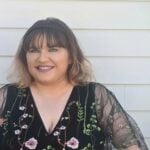After a brief pause of testing throughout the United States, researchers at Indiana University have resumed work toward a COVID-19 vaccine. Testing in the AstraZeneca study was put on hold briefly after announcing one patient – not in Indiana – experienced side effects.
So far, over 3,000 Hoosiers have volunteered to take part in the clinical study for the vaccine, known as AZD1222. The trial is taking place at IU Health University Hospital in Indianapolis. Researchers want to expand the trials and engage a more diverse group of participants.
Dr. Cynthia Brown, associate professor of clinical medicine and the director of the Indianapolis testing site, said she’s looking to enroll 1,000 more volunteers in the upcoming weeks to make sure the testing is as thorough as possible. She said she would like the control groups to be as diverse as possible.
“Historically, minority populations have been underrepresented,” Brown said in a previous interview with the Recorder. “Looking at our sample of volunteers, we’re trying to oversample Black and Hispanic people to bring more minorities in.”
Through education campaigns and representation in leadership, the research team hopes to bring Brown’s goal to fruition. Francesca Duncan, a pulmonary and critical care medicine fellow leading the study, hopes her role in the trial puts other African Americans at ease.
“It’s important for me to be part of this study, because I just feel that African Americans often have a mistrust in the medical community,” Duncan said. “My hope is that through education, as well as my presence, more African Americans will be willing to participate so that we can find a vaccine that can help everyone.”
Despite the rising COVID-19 cases in Indiana — as of Dec. 1 the state had 350,970 positive cases — some Black Hoosiers are wary of getting a vaccine once one becomes available.
Tawnya Williams, 57, has not yet fully recovered from COVID-19 since her diagnosis in August. Despite her persistent muscle aches and memory issues, Williams said she’s in no rush to get vaccinated.
“I can’t see myself getting one,” Williams said.
Brown understands the apprehension, citing historic mistreatment of African Americans in medical trials. However, she said patient safety is first and foremost in any clinical trial.
Each volunteer will be given two shots over the course of a year. Currently, researchers believe the vaccine will be most effective with two rounds. Some volunteers will receive a second round of the vaccine while others will get a saline placebo.
To be included in the study, participants cannot have had COVID-19 in the past.
“We’ve seen the travesties,” Dr. Roberto Swazo, who is also helping to lead the study, said in a press release. “The coronavirus has affected millions of people worldwide. I think we owe it to everyone to try and be part of the solution, and we’re hoping this clinical trial will have a positive impact here at home.”
Click here for more information about how to get involved.
Contact staff writer Breanna Cooper at 317-762-7848. Follow her on Twitter @BreannaNCooper.








